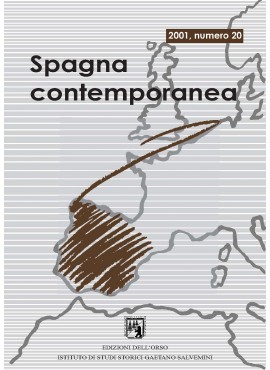Pueblo y nación en España durante la Guerra de la Independencia
Resumen
Pueblo y Nación en España durante la Guerra de la Independencia
The essay starts with Max Weber’s Nation’s concept, the impossibility of attaining a Nation’s univocal concept, and applies such idea to modern Europe and Spain, especially since the XVIII Century. In this century the struggle between the State and the Church, culminating with the Jesuits’ question, presides over the birth of the national feeling. In Spain the Guerra de la Independencia adds an important nuance to the national assertion: such feeling’s bond with the Constitution and the rights of the man. Only General Castaños keeps out of this context: for him the Nation is born from military victory. Very soon, when promises are not kept, concepts become altered: the people, as subject of every right becomes an imaginary being, whilst the real people, which is around us, is brutally exploited. When the Guerra de la Independencia’s texts quote the Nation, they mean the Spanish one. During the French rule only the “Diario de Barcelona” makes an exception.
Descargas
Publicado
Número
Sección
Licencia
Derechos de autor 2001 Istituto di studi storici Gaetano Salvemini, Torino

Esta obra está bajo una licencia internacional Creative Commons Atribución-NoComercial-SinDerivadas 4.0.



